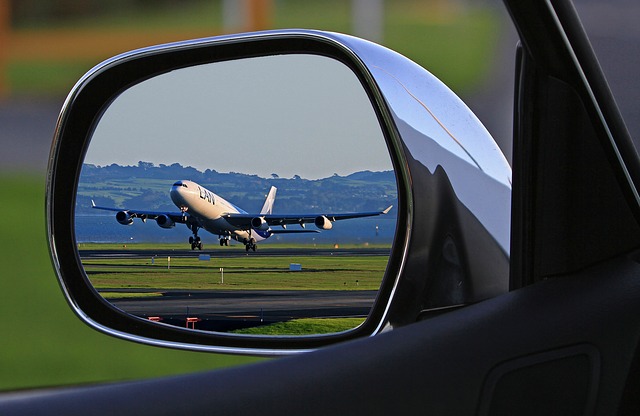
Insulation For Transportation
Whether by surface or air, transport relies on high temperature insulation for safety and efficiency. Insulation benefits for transportation include heat shields, battery insulation, fire protection and insulation for data recorders.
Elmelin supports the aerospace and automotive industries, alongside other specialised transportation sectors, including the military. Our high temperature insulation solutions provide assurance and ensure safety in situations where extreme conditions are frequently a normal operating environment.
Up in the Air

For aircraft, weight is a crucial issue. Lightweight but durable high temperature insulation solutions are essential in the aerospace industry. This means using materials that provide low thermal conductivity, with a wide capability for dealing with temperature extremes. Due to mica’s unique, natural properties as an insulation material, it makes various vital contributions in this sector.
The challenge, in aerospace applications, is to find insulation solutions that meet a wide range of specifications but retain their stability under pressure, resist damage and are available as a variety of components.
With aerospace applications having a focus on flexibility and weight, mica is ideal for tubing and ducting, and it provides insulation critical for thrust reversal systems, where the aircraft’s engine diverts temporarily, directed forwards instead of backwards. This helps the aircraft to decelerate after touch-down, while reducing wear on the brakes. It also means the aircraft is more versatile as it then requires shorter distances in which to land safely.
Mica components also contribute to aircraft construction, helping make them fireproof but still lightweight. Consequently, you see high temperature insulation in wings, piping, engines and exhaust systems, auxiliary power units and even the galley ovens on a plane.
Another essential aircraft component is the flight recorder. Also known as the black box, or data recorder, this device is fundamental for aircraft safety as it can provide a record of any accident or incident. The flight recorder must, therefore, be able to withstand extremes and any potential damage. It must meet minimum specifications for impact velocity and crushing distance. It must be capable of resisting intense heat, but also deep sea pressure.
Mica provides a protective insulation layer for flight recorders, while allowing its integrated circuits to function without interference. All flight recorders must undergo rigorous testing and quality control as part of their manufacture. Mica’s adaptability and stability help ensure they meet these standards.
Similarly, aircraft batteries must be both flame retardant and fire resistant, which is where mica provides essential insulation to ensure their vital functional stability.
On the Road

Controlling the transfer of heat while ensuring that vehicles operate efficiently are huge concerns for manufacturers in the automotive sector. Demands for greater vehicle operational and environmental efficiency continue to rise, and temperature control plays a pivotal role in this.
Mica’s superior dielectric insulation qualities and thermal conductivity make it extremely well suited for a broad range of specialist automotive applications.
Mica protects and insulates vehicle batteries, providing strong but lightweight solutions. These solutions must meet the demands of every day working but also be reliable in less standard, more extreme conditions. In short, to deal with the unexpected as part of a standard range of responses.
Batteries can experience thermal runway, where complex chemical reactions generate extremes of heat, leading to a positive feedback cycle that interferes with the battery’s performance.
Mica laminates form the basis for battery insulation, protecting the battery’s housing, cells and composite tubes, helping ensure efficiency and reduce the risk of thermal runway.
Just as vehicles are becoming increasingly advanced in their technology, so their components are more sophisticated and sensitive, and require high temperature insulation to function consistently and reliably whatever the driving conditions.
Mica is used in a variety of automotive applications, from providing insulation laminates to being the basis key components such as thermal gaskets, starters and alternators.
As motoring technology continues to develop, so mica and mica-based insulation solutions develop alongside it.
Other Transportation Elements
Beyond the commercial aerospace and automotive manufacturing sectors, mica provides other benefits to transportation.
These are largely to do with issues around security and safe operating conditions. They include heat shields, insulation for data recorder boxes and fire proofing solutions.

Large vehicle fleets in the transport industry use data recording boxes, which have made a significant contribution to accident research, crash reconstructions and advances in vehicle safety measures.
As with black boxes on aircraft, these data recorders require sufficient high temperature insulation to ensure they will function in extreme and unexpected conditions. A mica insulation layer will provide the necessary protection to give a data recorder fire protection. The same principle applies to data recorders used in specialist military applications.
Again, there is a crossover in demand for heat shields for both transportation and military sectors. Mica-based heat shield barriers offer protection from heat damage, and insulation for heavy and armoured vehicle exhausts. They keep heat away from vital vehicle parts, and body panels, protect sensitive electrical equipment and lower interior temperatures in vehicles.
Fireproofing of bodywork and interiors is also a key part of vehicle safety.
High temperature insulation improves vehicle safety, supports advanced technological vehicle components and extends the useful lifespans of vehicles on the road.
Can Mica Help You on the Move?
What are your insulation requirements for your transportation? Whether its aerospace, automotive or another specialist transport function, mica’s strength and sheer adaptability make it the ideal foundation for advanced, high temperature insulation solutions. To find out more, give us a call on +44 20 8520 2248, or email sales@elmelin.com. Alternatively, you can complete our enquiry form and we’ll get back to you as soon as soon as we can.
